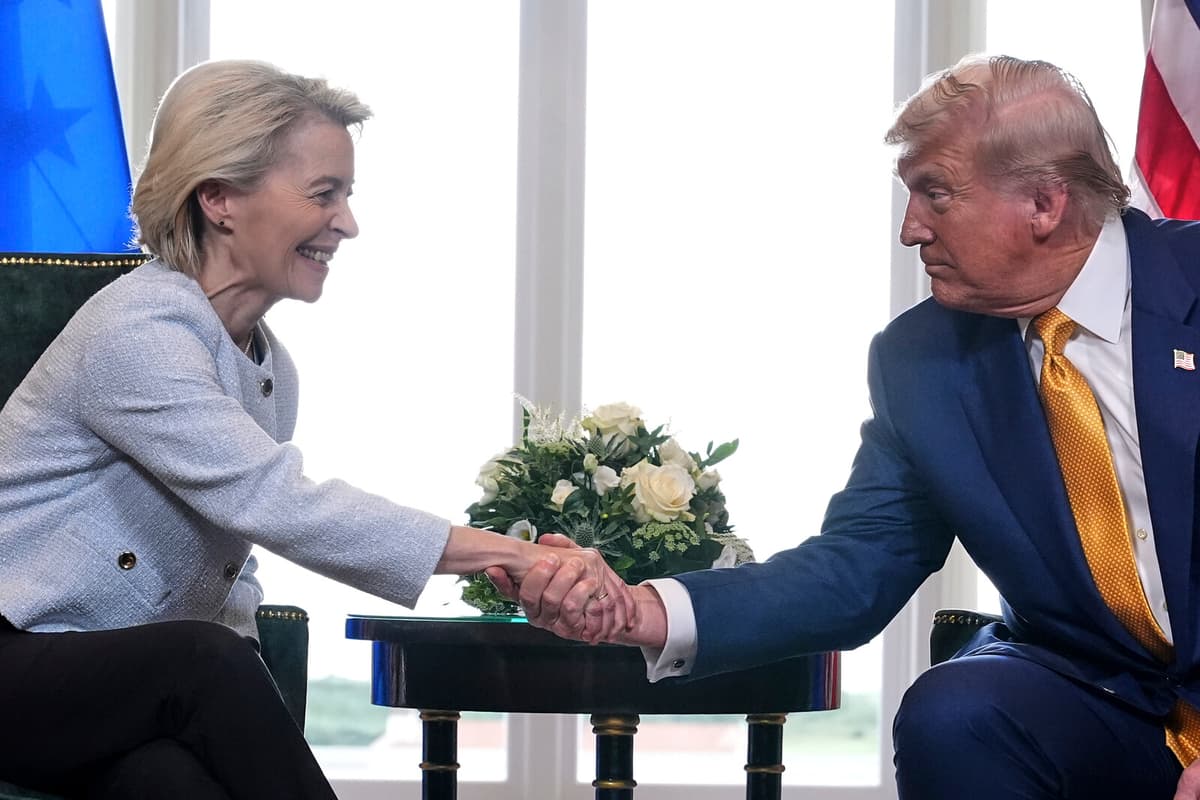The European Commission's President Ursula von der Leyen has received many acidic comments for the agreement made with the US President Donald Trump on July 27.
You buried the Draghi and Letta reports (on how the EU will get more growth and competitiveness) together with our strategic autonomy on a golf course in Scotland, raged Iratxe García Pérez, group leader for the EU Parliament's social democrats, in the debate after von der Leyen's annual speech last week.
Prior to this, the Commission President tried to defend herself.
I will never gamble with people's jobs and livelihoods. We made sure the EU got the best possible deal, claimed von der Leyen.
Better than nothing?
Despite everything, she also has support behind her, not least because many fear that tougher measures from the EU would only have been followed by even worse tariff threats from the US and also withdrawn US support to Ukraine.
It's an agreement that's hard to be enthusiastic about, but it's better than the alternative, says Jörgen Warborn (The Moderate Party) at a Swedish press conference in the EU Parliament.
I don't think anyone in this house is satisfied. But almost everyone sees that an agreement is better than not having one, says colleague Emma Wiesner (C).
Lobster decision
The concern about what would happen otherwise will likely help the agreement get approved. On the other hand, it's not much that the EU Parliament is expected to have a say in.
Formally, it's only two parts that the members will handle this fall: on the one hand, a broader piece about removing tariffs on industrial products and opening up for shellfish and certain agricultural products, on the other hand, a much narrower part about extended tariff-free for lobster of various kinds.
So far, however, it's unclear how the treatment will go, for example, regarding the possibility of submitting amendment proposals.
Oil and weapons
The agreement in Scotland also includes other things that are not yet concrete proposals. The EU is expected to buy American energy - mainly oil and gas - for a staggering 750 billion dollars, around 7 billion million kronor, over the next three years. However, this is not something the EU can decide on, since the EU itself does not conduct any trade.
Instead, it's up to the member states to trade in Washington. The same applies to promises to make billion-dollar investments and buy weapons from the US.
These parts are what upset the critics the most.
It goes exactly totally against what the EU has been talking about all spring, that we should be more independent, says Isabella Lövin (Green party) in the EU Parliament.
The European Commission's President Ursula von der Leyen and the US President Donald Trump reached an agreement in Scotland on July 27 to avoid a trade war.
This includes, among other things, a 15 percent tariff on "the vast majority" of the EU's exports to the US and mutual abolition of tariffs on certain other goods, such as aircraft parts and critical raw materials. According to Trump, the EU also promises to buy energy for 750 billion dollars and make investments in the US for 600 billion.
The agreement has been criticized in many parts of Europe for being to the one-sided benefit of the US and has already led to demands for further votes of no confidence against von der Leyen.






